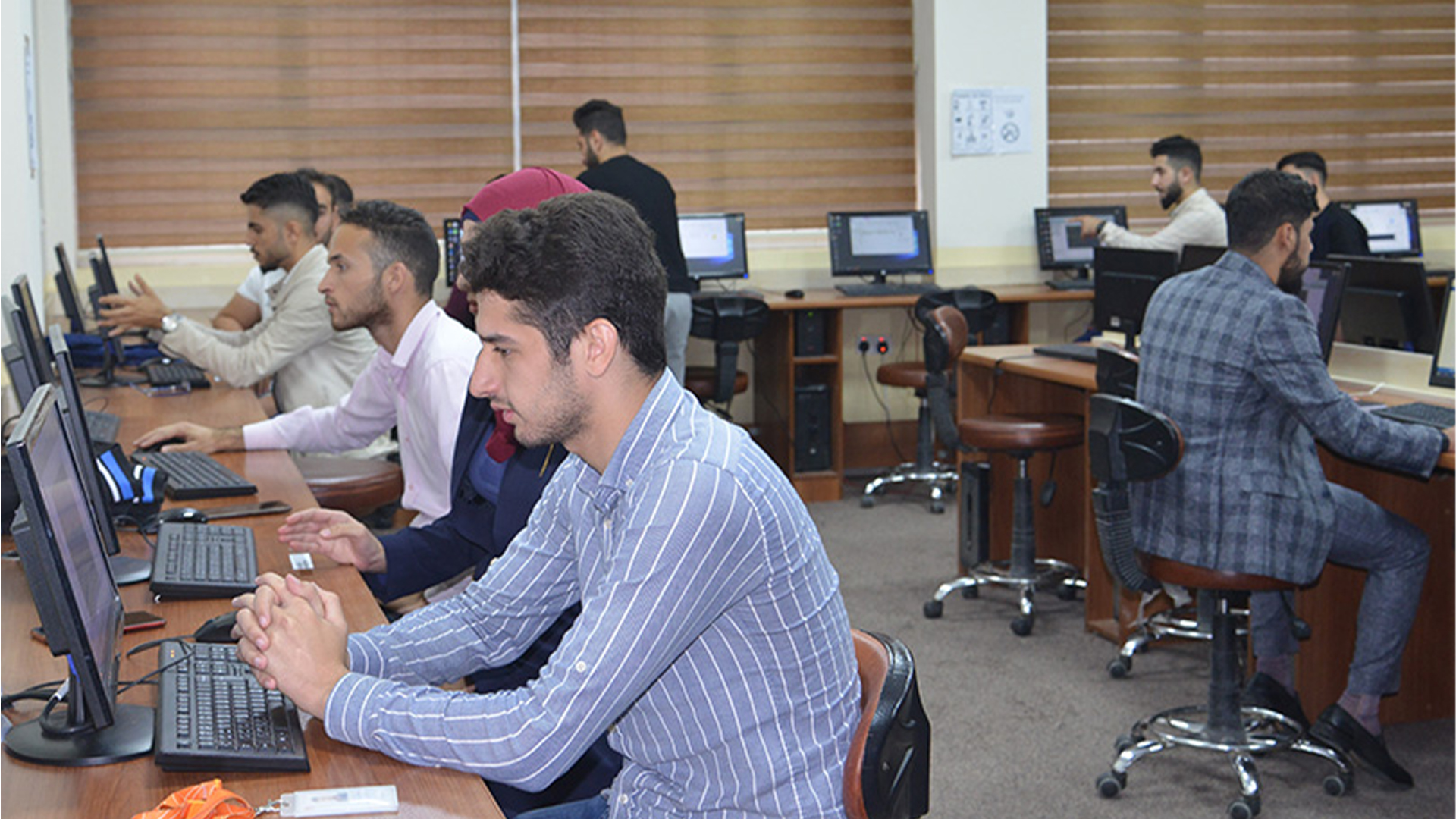Around 60% of youth in Iraq lack digital skills needed for employment and social inclusion, new report says
Reports 04:26 PM - 2022-07-19
Nearly three quarters of youth aged 15 to 24 in 92 countries with available data, including Iraq, are off-track to acquire the skills needed for employment, according to a new report published last week by the Education Commission and UNICEF ahead of World Youth Skills Day.
The report Recovering learning: Are children and youth on track in skills development? features analyses on skills development in early childhood, and among children of primary school age and youth. The data highlights low levels of skills among children and young people across all age groups, with youth in low-income countries the least likely to have the skills required to thrive, particularly in future employment opportunities, decent work, and entrepreneurship.
“An inspired, skilled generation of children and young people is critical for prosperity, progression, and the success of societies and economies. Yet, the majority of children and young people across the world have been failed by their education systems, leaving them uneducated, uninspired, and unskilled -- the perfect storm for unproductivity,” said UNICEF Director of Education Robert Jenkins. “Investment in cost-effective, proven solutions to fast-track learning and skills development for today’s generation and future generations is urgently needed to address this crisis.”
In Iraq, where youth represent the largest segment of the population, the report indicates that 59.2% of the youth aged between 15-24 lack digital skills to perform basic computer-related activities. Youth also lack opportunities to access life-skills based education, employability, and entrepreneurial skills that will enable their smooth transition into the labour market. Moreover, there are limited opportunities to equip youth with necessary skills to increase their civic engagement and enable them to become active and informed citizens and promote their participation in decision-making processes.
With high rates of out-of-school young people, low attainment of secondary-level skills, and lack of learning opportunities, countries worldwide are facing a skills crisis, with the majority of youth unprepared to take part in today’s workforce, the report notes.
Deep disparities across countries and among those from the poorest communities are increasing inequalities. In at least 1 in 3 low-income countries with available data, more than 85 percent of young people are off-track in the secondary-level, digital, and job-specific skills attainment, the report notes.
"To give young people the best chance to succeed and recover learning losses due to the pandemic, we need to support them holistically. But we can't recover what we don't measure. We need to know where children and youth are in building the range of skills they need and monitor their progress. That's why the Education Commission, UNICEF, and partners have been working to address critical data gaps, including the launch of the World Skills Clock to help track progress on and raise awareness around youth skills attainment around the world so we can target urgent action to prepare this generation to thrive in the future," said Education Commission Executive Director Liesbet Steer.
Data from 77 countries show that less than three-quarters of children aged between 3 and 5 years old are developmentally on track in at least three out of the four domains of literacy-numeracy, physical, social-emotional, and learning. At approximately 10 years old, the majority of children in low- and middle-income countries are unable to read and understand a simple text. These foundational skills are the building blocks for further learning and skills development, the report notes.
Basic literacy and numeracy; transferable skills including life skills and socioemotional skills; digital skills, which allow individuals to use and understand technology; job-specific skills, which support the transition into the workforce and promote their social inclusion as agent of change; and entrepreneurial skills are essential for children and youth to thrive. These skills are also critical for the development of societies and economies.
“It is critical to build skills of children and youth for them to achieve a deep sense of empowerment. Yet, prolonged school closures due to the COVID-19 pandemic have disrupted their skills development,” says Ms. Sheema SenGupta, UNICEF Representative in Iraq. “UNICEF will continue to work with the Government of Iraq and other partners to ensure more comprehensive and inclusive skills development initiatives are in place to realize the vision where every child and youth develops the full range of skills needed for success in school, work and life.”
UNICEF and the Education Commission are urging governments to reach every child and youth with quality education and learning and break down the barriers that put them at risk of dropping out; assess children’s and young people’s learning levels and provide tailored catch-up classes and skilling opportunities to bring them up to speed; prioritize foundational skills to build a strong base for lifelong learning; and support psychosocial health and well-being by providing holistic support. The report outlines the need for more extensive data on the skills gap among children and young people across all age groups.
PUKmedia / UNAMI
More news
-
UAE Classifies Khor Mor Attack as Terrorism, International Violation
07:49 PM - 2024-04-27 -
Officials Call for Urgent Investigation Into Khor Mor Gas Field Attack
10:31 PM - 2024-04-26 -
Another International Report Mentions Kurdistan's Limited Freedom
09:24 PM - 2024-04-25 -
U.S. State Department Mentions Deterioration of Journalists' Rights in Iraq & Kurdistan
06:48 PM - 2024-04-25
see more
Khor Mor Drone Attack Sparks International Reaction
11:04 AM - 2024-04-27
10 Notable Individuals Receive Golden Bla Award
09:27 PM - 2024-04-23
DPM Talabani Asks Turkish President to Lift Ban on Sulaymaniyah Airport
11:43 AM - 2024-04-23
Iraqi & Turkish Presidents: Problems Should Be Resolved Through Dialogue
05:00 PM - 2024-04-22
Most read
-
Officials Call for Urgent Investigation Into Khor Mor Gas Field Attack
Kurdistan 10:31 PM - 2024-04-26 -
Khor Mor Drone Attack Sparks International Reaction
Kurdistan 11:04 AM - 2024-04-27 -
Yemen Reveals Khor Mor Victims' Names
Kurdistan 07:28 PM - 2024-04-27 -
UAE Classifies Khor Mor Attack as Terrorism, International Violation
Kurdistan 07:49 PM - 2024-04-27





.jpg)
 Application
Application


